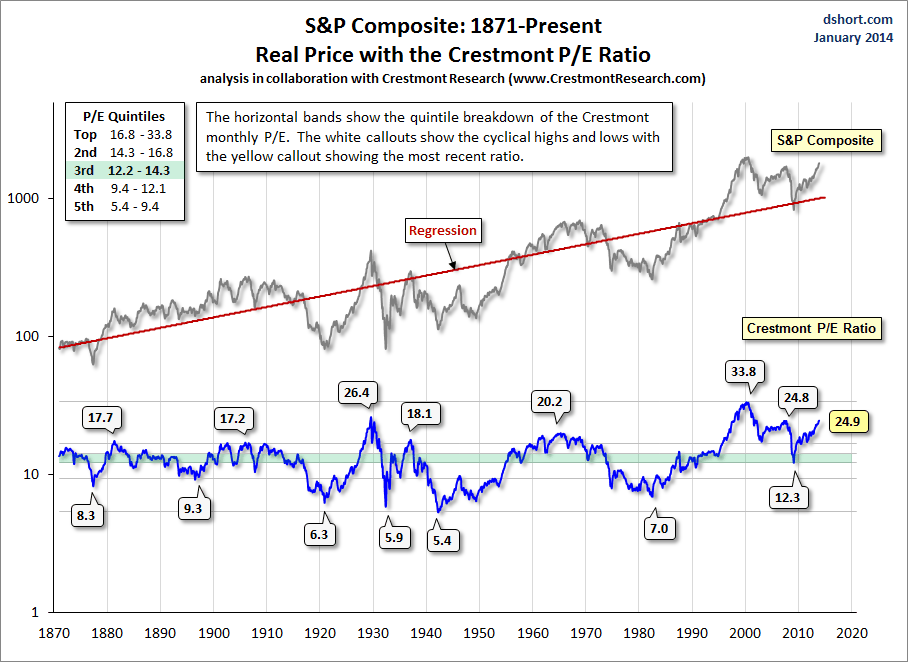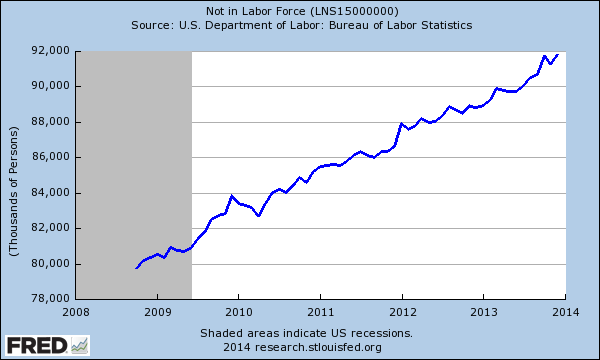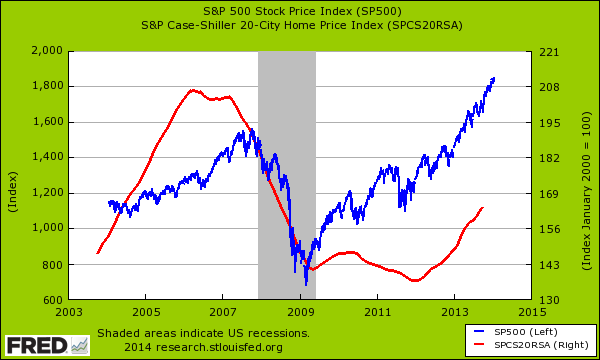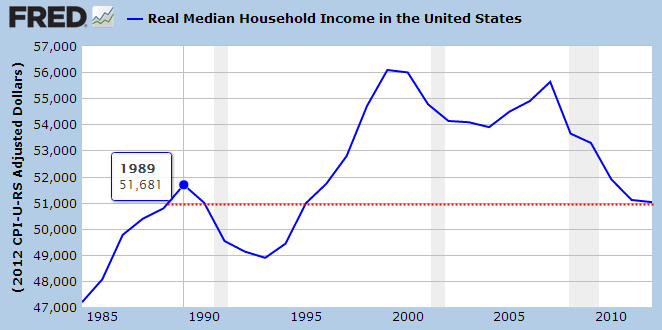Is the stock market overvalued by 50 percent? PE ratios out of sync with fundamentals underlying the economy. Not in labor force group in US increased by 15 percent since recession ended.
- 4 Comment
How quickly people forget financial history. Those investing in the stock market since 2009 have grown accustomed to a market that only moves in one direction. They are also addicted to a system built off crony financial leverage that has largely locked out the vast majority of the public. This system has created wealth inequality that is now the worst we have seen during multiple generations. The stock market is massively overvalued based on multiple measures. Many use earnings as a way of measuring the actual value of a company. The PE ratio has been used over many decades as a sensible way of valuing companies. That is why today, with the PE ratio of the S&P 500 being 80 percent higher than the historical average dating back to 1870 we have to question what is driving this market higher. Certainly those with wealth, a smaller portion of the population, understand the Fed is debasing savings so people are diving deep into stocks, art, and even real estate to preserve wealth. Those that claim no inflation is imminent fail to look at the items that impact the lives of people daily. The stock market is up 164 percent from the lows reached in 2009! People are now addicted to a market juiced by easy funny money.
People also forget that in early 2009, the S&P 500 hit 676. Today the S&P 500 stands at 1,790. This is one of the fastest ascensions in the history of the market. However, the earnings of companies do not justify these current valuations. The historical PE ratio going back to 1870 is 13.8 and today it is closer to 24.9 (80 percent higher than the trend line). Does this matter? Absolutely. It shows euphoria in the financial markets that is disconnected from reality. Since the majority of Americans own no stocks, this has little impact on them. It is also the reason why this massive rally has had little impact with improving their lot. After all, many companies have boosted earnings by slashing benefits and wages. The pressure of big money looking for a home has also made housing more expensive for the working class. First, take a look at the PE ratio on a historical timeline:
The market is incredibly overvalued. Of course we have new demographic changes impacting our system as well. A large part of the workforce has dropped out. If we were to include this shadow labor force of 12 million people our unemployment rate would move up to 11 percent. The unemployment rate keeps dropping because we have more people falling out of the labor force. How convenient:
Since the recession ended in 2009, we’ve added 12 million Americans to the “not in the labor force†category far outstripping any comparable changes in population (population up by 2 percent those not in the labor force up by 15 percent). Then factor in the reality that many in the country are now working in low wage fields. Is it any wonder that last year, the two biggest growth sectors for consumer debt came through auto debt and student debt?
Inflation in stocks and real estate
There has been no real income growth for Americans since the recession hit. Yet, stocks and also real estate continue to become more expensive:
Since 2009 nearly 30 percent of all home purchases have gone to Wall Street or hedge fund investors. This has driven up prices on this asset class and has also caused rents to rise. Yet incomes are not up:
So all you have is more money being diverted to assets controlled by the top one percent in the country. This money is heavily subsidized by the Fed and the end result is real inflation for the working and middle class of the country. This isn’t a free market enterprise but massive financial chicanery for those connected to the crony banking system. All you have is more real money being extracted from the real economy going to the hands of a few that really add no value to the economy. They extract value. These aren’t the job producers here; we are talking about hedge funds and bankers that essentially sit behind Bloomberg terminals and do what most do on a Las Vegas casino floor. They gamble. They speculate. And much of the money isn’t from their wallets being leveraged with easy money courtesy of the mother ship, the Fed, feeding the system.
Is the stock market overvalued? Absolutely. It looks to be overvalued by at least 50 percent. You have to justify your current price and this PE ratio is at the higher end of data going back to 1870. The public isn’t really in the game but many do understand what is going on. Another bubble under a different name.
If you enjoyed this post click here to subscribe to a complete feed and stay up to date with today’s challenging market!
4 Comments on this post
Trackbacks
-
FreeMoneySite.info said:
Very true
July 21st, 2014 at 12:44 pm -
Jr said:
So based on this information, we are most likely looking at a bigger recession than the last recession (which I believe the government should have let that recession play out and recover on its own. And we wouldn’t be in the situation we are in now). Based on the information you have collected and interpreted, what industry do you think this recession will be blamed on? Like everyone blamed the banks for giving out mortgages people couldn’t afford, back in 08′. And for people in the middle class that do put some money into the stock market, what would you recommend for them to do? Would you consider it wise to start thinking about investing in put options (short term) for when the downfall starts. If that was someone’s strategy for making money when the downfall starts (buying puts and closing them before their expiration). Which stocks would you think will have the hardest downfall when the ballon falls? Or would you consider a different strategy.
January 9th, 2015 at 5:21 pm -
Dave said:
Good analysis and completely accurate. Free money, stock buy backs, dividends and the “no where else to put my money” driving the stock market up. Earnings slow and sluggish at best. A 50% drop would be very reasonable and healthy. Reality has to check back in soon. They will fight it, but it can’t be stopped.
August 24th, 2015 at 9:21 pm -
AmericanDreamer said:
This stock market is driven by the misguided effort of the Federal Reserve to micromanage our economy by driving down interest rates instead of addressing the real issues that keep participation in the workforce down and on and on
November 3rd, 2015 at 7:58 pm




 If you enjoyed this post click here to subscribe to a complete feed and stay up to date with today’s challenging market!
If you enjoyed this post click here to subscribe to a complete feed and stay up to date with today’s challenging market!